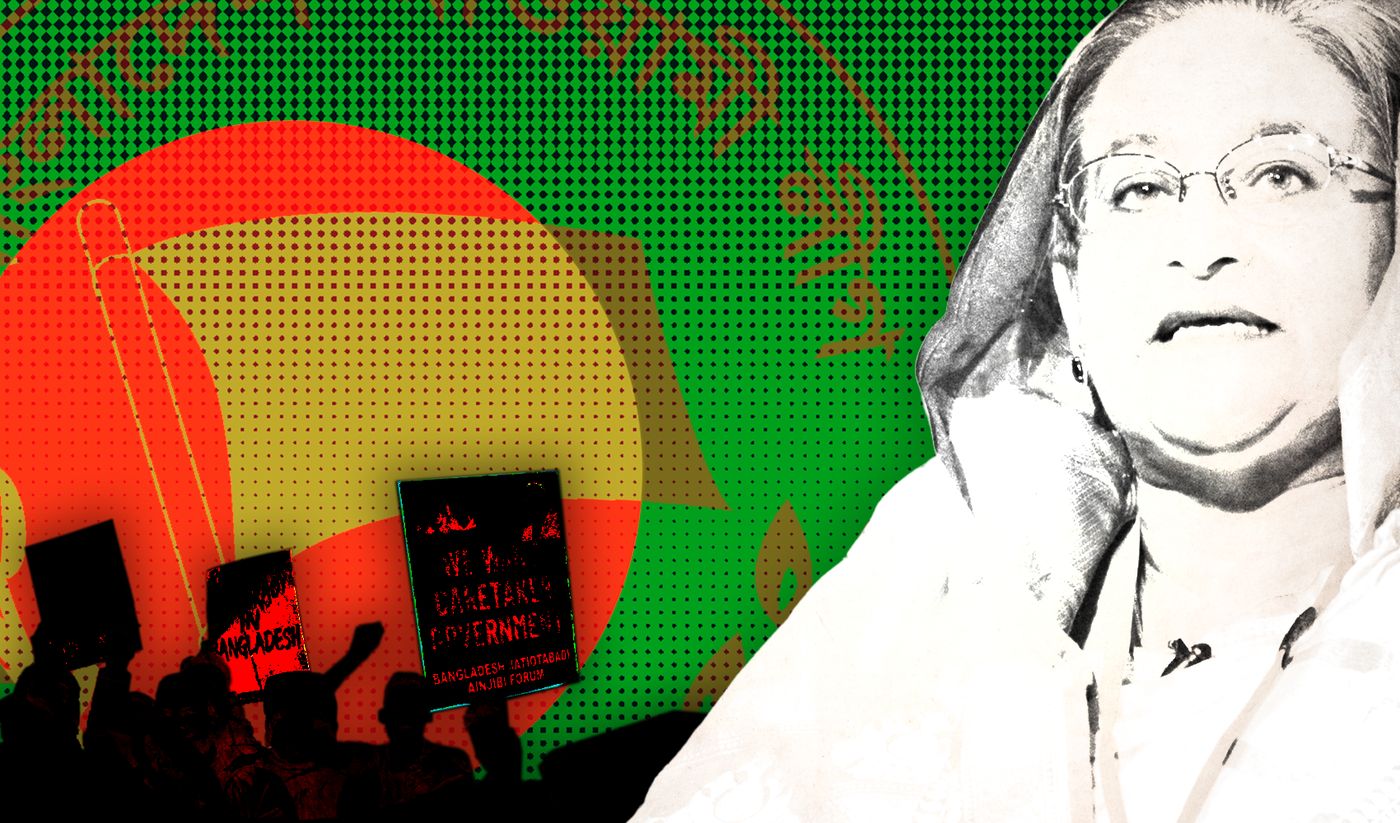The Bangladesh general election on January 7 is widely expected to be neither inclusive nor competitive.
The main Opposition party, the Bangladesh Nationalist Party (BNP), is boycotting the elections along with another 14 of the nation’s 44 registered political parties.
Political observers believe the electoral field has been deliberately curtailed to ensure a fourth consecutive term for Prime Minister Sheikh Hasina who leads the ruling Awami League (AL).
The BNP and other Opposition parties have demanded a return to the practice of holding elections under a caretaker government.
Bangladesh witnessed robust and representative elections between 1991 and 2008 – with the exception of the elections of February 1996 when the BNP was in power and the then-opposition Awami League boycotted the elections demanding they be held by a neutral caretaker government.
Now the shoe is on the other foot.
The caretaker government system for holding elections came about because the one-sided election in February 1996 led to the BNP winning 300 out of 300 seats, resulting in widespread political turmoil.
Parliament then passed the 13th amendment to the Constitution to allow a neutral caretaker government to assume power and oversee fresh elections on June 12 1996. That led to the AL coming to power.
However, the AL, which has been in power since 2008, after a Supreme Court judgement holding the system illegal, decided to do away with the caretaker government system in 2011.
Coincidentally, the two general elections held under the aegis of the AL government – in 2014 and 2018 – were widely considered to be less than fair. In 2014 more than half the constituencies were won by the AL uncontested and in 2018, there were allegations of ballot-stuffing on the eve of polling.
The 2024 election is also turning out to be one-sided.
There have been allegations that the state’s security machinery is working in cahoots with the activists of the ruling party to attack Opposition political gatherings.
A recent report by Human Rights Watch found evidence that “security forces are responsible for using excessive force, mass arbitrary arrests, enforced disappearances, torture, and extra-judicial killings in a spate of recent election related violence’’.
BNP leaders claim that more than 20,000 party supporters have been arrested on “fictitious and concocted” charges. Those detained are half that number and the police cases against them go as far back as 2001, the government has countered.
The big issue before the ruling dispensation is to ensure that the election appears as inclusive, competitive and participatory.
As attempts to split the main Opposition party, the BNP, have failed, three new “King’s parties” have been set up – the Trinamool (Grassroots) Bangladesh Nationalist Party, the Bangladesh Nationalist Movement and the Bangladesh Supreme Party.
Their participation will give the appearance of an inclusive and competitive election.
Of the 2,712 candidates, 747 are “independents”. A large number of them are “rebel” candidates from the AL who were denied party nomination. They have now been co-opted with official endorsement as “independents” by the AL.
The attempt once again is to package the election as inclusive and competitive.
Independent candidates endorsed by the AL are expected to corral their supporters and increase polling percentage.
In addition, beneficiaries of the government’s welfare schemes are being told that unless they vote on the polling day, financial payments to them would cease. A higher polling percentage will showcase the elections as participatory.
Bangladesh has also become a battleground for geopolitical competition between the US and China.
The United States seems worried by the growing Chinese strategic influence in Bangladesh under the Hasina government.
The US is apprehensive that this general election too may be stolen like the previous ones by the ruling regime. It has threatened visa sanctions against those (and their immediate family) who prevent a free and fair election. However, it has not escalated the sanctions, perhaps fearing that excessive arm-twisting could push Dhaka further towards Beijing.
India, despite being a strategic partner of the US and an integral part of its Asia-Pacific strategy, appears to have thrown its weight behind long-term ally Sheikh Hasina.
So has its arch-rival China, which has massive infrastructure investments in Bangladesh, and Russia. India is not unhappy being in the same camp as China perhaps because it thinks that being friendly with both China and India, Russia will provide the necessary balance between the two.
The consequences of an election that is not acceptable to the political class could throw Bangladesh into political turmoil.
Unrest may also be fueled by a deteriorating economy with the public suffering because of escalating cost of living, fueled largely by the rising cost of food and energy.
While Bangladesh’s foreign debt has doubled since 2016, forex reserves have dropped from USD$48billion in August 2021 to less than half at about USD$20bn now.
The government received an IMF bailout package of USD$4.7bn in January 2023, of which the two tranches have already been disbursed.
As the IMF’s proposed structural reforms tend to impose strict austerity measures, along with a weakening currency, Sheikh Hasina’s almost certain fourth consecutive term in office may face considerable public anger.
Some political observers have speculated that if Hasina is unable to control political unrest and fails to co-opt the army elite, conditions may be created for a military intervention.
(This article was originally published under Creative Commons by 360info)

